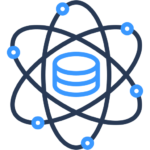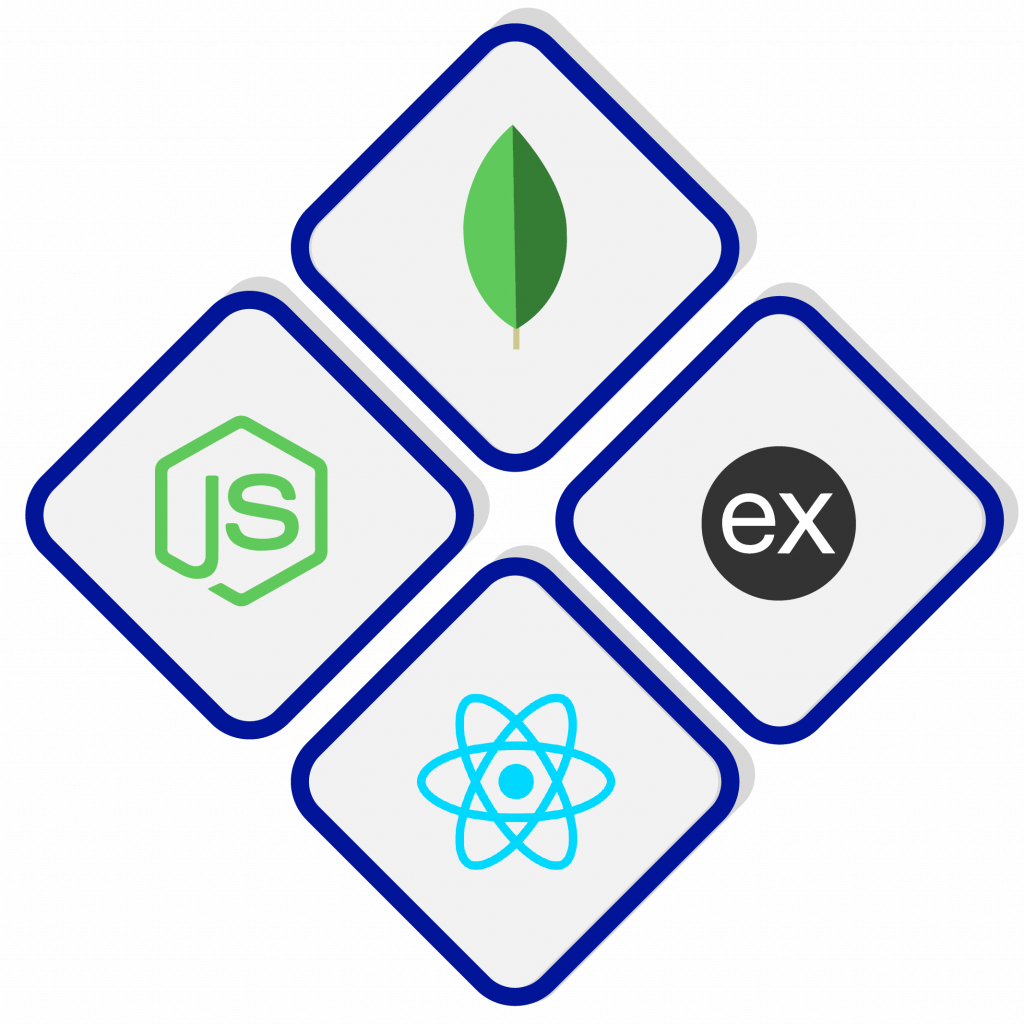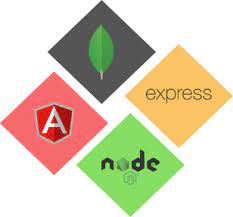Mean Stack Course Curriculum
- Overview of the MEVN Stack
- What is MEVN? Understanding the components: MongoDB, Express.js, Vue.js, Node.js
- The benefits of using the MEVN stack for full-stack development
- Setting up the development environment
- Development Tools and Workflow
- Installing Node.js and npm
- Overview of essential tools: Git, Visual Studio Code, Postman
- Introduction to version control with Git and GitHub
- Introduction to MongoDB
- Understanding NoSQL databases and MongoDB’s document model
- Setting up a MongoDB database locally and in the cloud (MongoDB Atlas)
- MongoDB data types and schema design
- CRUD Operations in MongoDB
- Creating, Reading, Updating, and Deleting documents in MongoDB
- Using MongoDB Compass for database management
- Introduction to Mongoose: an Object Data Modeling (ODM) library for MongoDB and Node.js
- Advanced MongoDB
- Indexing for performance optimization
- Aggregation framework for advanced data queries
- Data modeling best practices
- Introduction to Node.js
- What is Node.js and its role in the MEVN stack?
- Understanding the event-driven, non-blocking I/O model
- Setting up a Node.js project
- Core Node.js Modules
- Working with core modules: File System, HTTP, Path, Events
- Creating a basic web server with Node.js
- Introduction to asynchronous programming in Node.js: callbacks, promises, async/await
- Package Management with npm
- Understanding npm (Node Package Manager)
- Installing and managing dependencies
- Introduction to popular Node.js packages
- Introduction to Express.js
- What is Express.js and why use it?
- Setting up an Express.js project
- Routing in Express.js: handling different HTTP methods and routes
- Middleware in Express.js
- What are middleware functions and how to use them?
- Creating custom middleware
- Working with built-in middleware for logging, JSON parsing, and static files
- Building RESTful APIs with Express.js
- Designing and implementing RESTful API endpoints
- Handling request and response data
- Error handling and validation in Express.js
- Advanced Express.js
- Implementing authentication and authorization
- Securing APIs with JWT (JSON Web Tokens)
- Integrating third-party services and APIs
- Introduction to Vue.js
- What is Vue.js? Understanding the Vue.js ecosystem
- Setting up a Vue.js project using Vue CLI
- Understanding the Vue instance and basic Vue syntax
- Core Concepts in Vue.js
- Vue components: creating, nesting, and reusing components
- Vue templates, directives, and event handling
- Vue data binding: one-way and two-way binding
- State Management in Vue.js
- Managing state in Vue components
- Introduction to Vuex for state management
- Handling global state with Vuex: actions, mutations, getters
- Vue Router for SPAs
- Introduction to Vue Router
- Setting up routes and navigation in a Vue.js application
- Dynamic routing and route guards
- Advanced Vue.js
- Vue.js lifecycle hooks and custom directives
- Optimizing Vue.js applications: lazy loading, code splitting
- Using Vue.js plugins and extending Vue functionality
- Connecting Vue.js with Express.js
- Making HTTP requests from Vue.js using Axios
- Handling CORS (Cross-Origin Resource Sharing) issues
- Building a full-stack application with Vue.js and Express.js
- Working with APIs
- Consuming RESTful APIs in Vue.js
- Managing asynchronous data in Vue components
- Handling API errors and loading states in the UI
- Deploying MEVN Applications
- Preparing a MEVN application for deployment
- Deploying back-end services to platforms like Heroku, AWS, or DigitalOcean
- Deploying front-end applications to Netlify, Vercel, or Firebase
- Containerization with Docker
- Introduction to Docker and containerization concepts
- Dockerizing a MEVN application
- Using Docker Compose for multi-container applications
- CI/CD Pipelines
- Introduction to Continuous Integration/Continuous Deployment (CI/CD)
- Setting up automated builds and deployments with GitHub Actions, Travis CI, or Jenkins
- Monitoring and scaling applications in production
- Introduction to Real-Time Web Applications
- Understanding WebSockets and real-time communication
- Setting up real-time features with Socket.io in Express.js
- Integrating Real-Time Features in Vue.js
- Using Vue.js to display real-time data updates
- Building real-time chat, notifications, or collaborative applications
- Handling real-time data in a full-stack environment
- Building a Professional Portfolio
- Showcasing your projects on GitHub and a personal portfolio site
- Creating a resume and LinkedIn profile tailored to web development
- Interview Preparation
- Practicing coding challenges and whiteboard problems
- Reviewing common full-stack interview questions
- Mock interviews and technical assessments






CONTACT US
Explore Top Topics by Category
Top Courses
MEVN Stack Developer Course Online
Best MEVN Stack Training with Certification
MEVN Stack Web Development Course
Complete MEVN Stack Developer Bootcamp
Learn MEVN Stack Development Step-by-Step
MEVN Stack Developer Program for Beginners
MEVN Stack Course with Real-Time Projects
MEVN Stack Training Institute Near Me
Affordable MEVN Stack Course Online
MEVN Stack Full Stack Developer Course
Vue.js Node.js MongoDB Express Course
Live MEVN Stack Training Classes
MEVN Stack Course with Job Placement Support
One-on-One MEVN Stack Developer Training
MEVN Stack Weekend Training Program
MEVN Stack Internship and Certification
Hands-On MEVN Stack Developer Course
MEVN Stack Course in Bangalore
Self-Paced MEVN Stack Developer Course
Top MEVN Stack Course for Full Stack Development
Top Tutorials
MEVN Stack Tutorial for Beginners
Complete MEVN Stack Developer Tutorial
Step-by-Step MEVN Stack Web Development Tutorial
MEVN Stack Project Tutorial with Source Code
Free MEVN Stack Tutorial with Real-Time Example
Build a Full Stack App Using MEVN Stack – Tutorial
Vue.js Node.js MongoDB Express Tutorial
MEVN Stack CRUD App Tutorial
MEVN Stack Authentication Tutorial with JWT
MEVN Stack Blog App Tutorial
MEVN Stack REST API Tutorial
MEVN Stack Ecommerce Project Tutorial
MEVN Stack Full Course Tutorial (Frontend + Backend)
MEVN Stack Deployment Tutorial (Heroku/Vercel)
MEVN Stack Admin Dashboard Tutorial
MEVN Stack Tutorial with Vue 3 and Composition API
MEVN Stack Video Tutorial for Freshers
Hands-On MEVN Stack Coding Tutorial
Best MEVN Stack Tutorial for 2025
MEVN Stack Tutorial Series – Build Real-World Apps
Top Professional IT Training Modes
Best Online IT Training Courses with Certification
One-on-One IT Coaching for Career Change
Instructor-Led Classroom Training for Developers
IT Training for Beginners – Online or In-Person
Personalized IT Skills Training for Working Professionals
One-on-One IT Training Online
Classroom IT Training Near Me
In-Person IT Training Courses
Online IT Training Courses
Virtual IT Training Classes
Live Online IT Training with Instructors